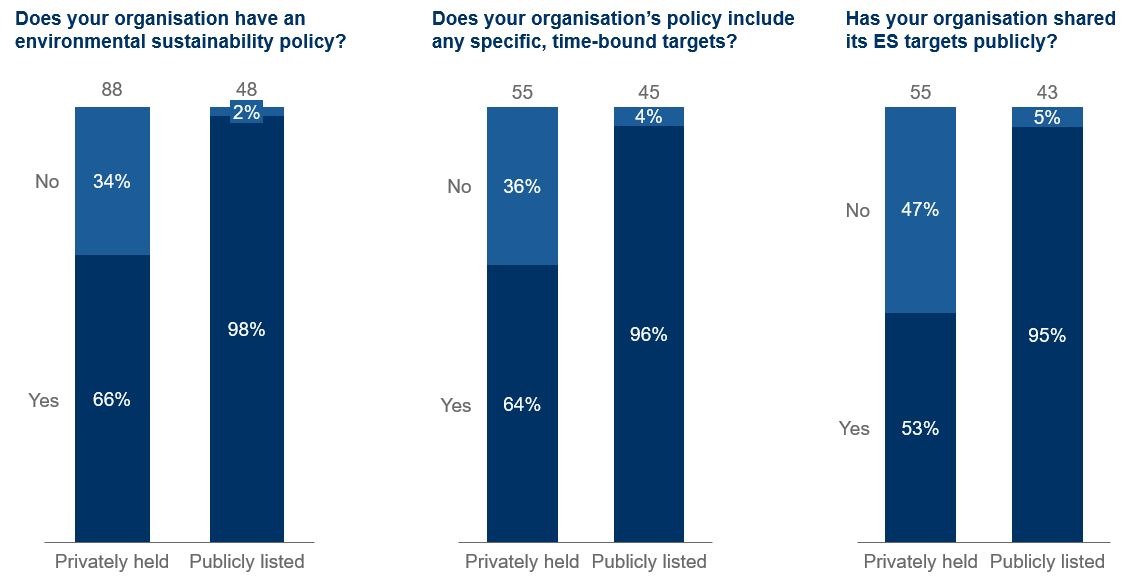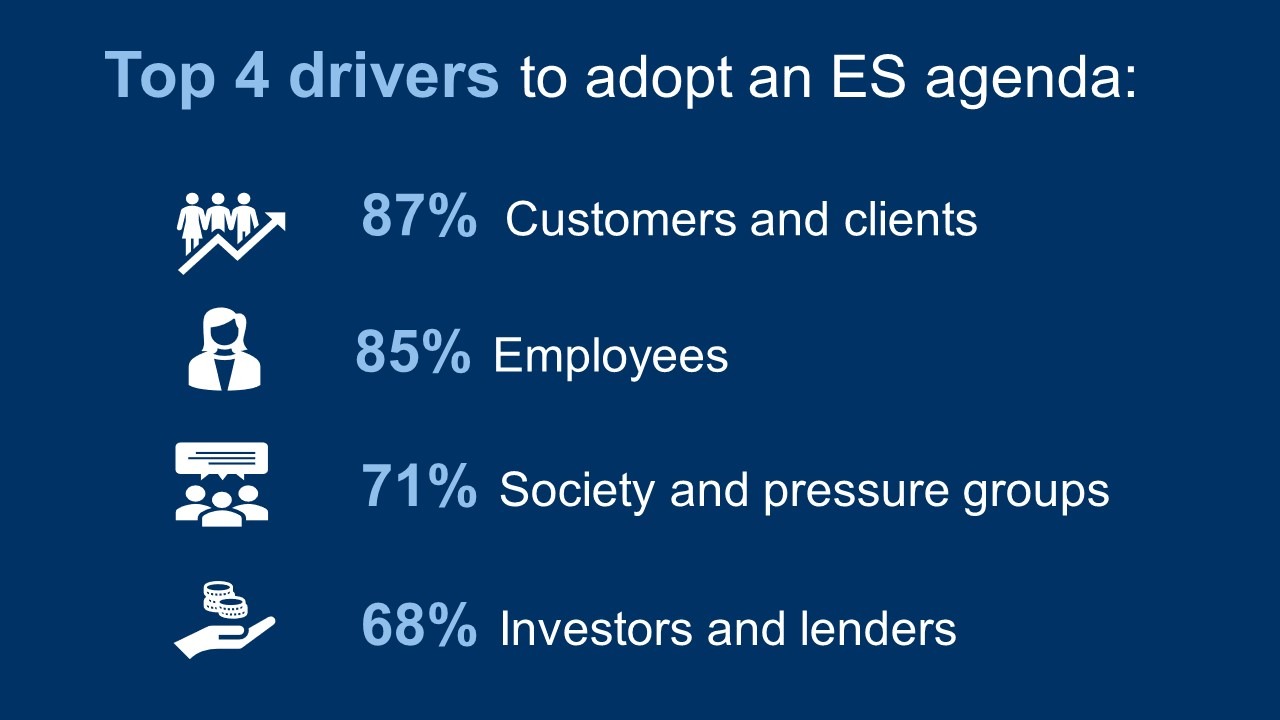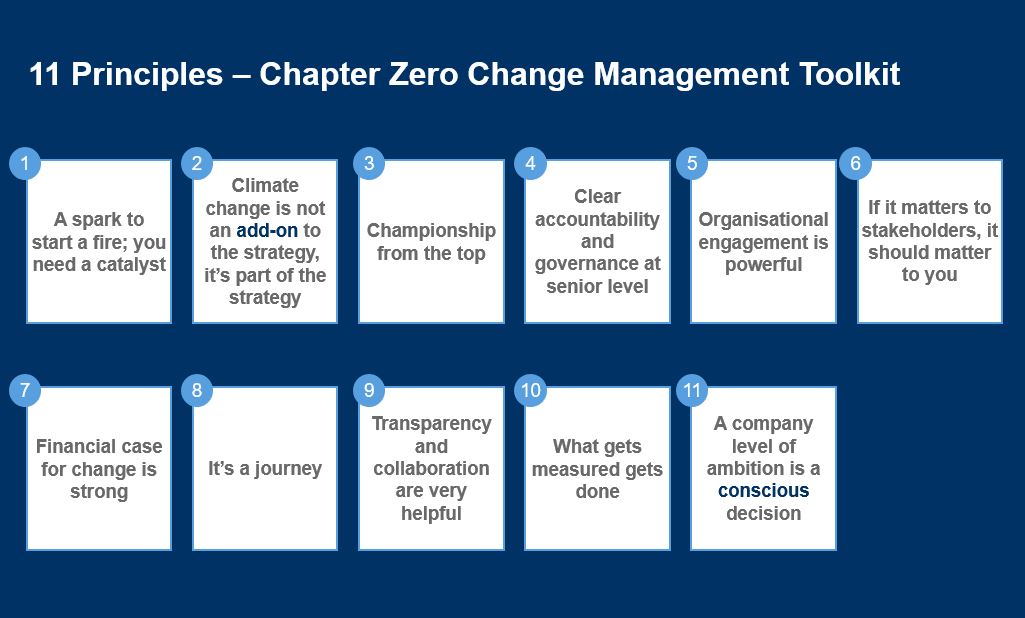Environmental sustainability in business – survey results
All eyes are on Glasgow during the two weeks of COP26, the UN Climate Change conference. But how is business already responding to the reality of climate change? Eden McCallum asked just over 150 of its clients, both publicly listed and privately held businesses, to find out what action is being taken now.
Taken together, 78% of respondents do have an environmental sustainability (ES) policy in place. But the aggregate figure hides an important difference: while virtually all the public companies asked (98%) have an ES policy, only two thirds (66%) of privately held companies do.
The differences do not end there. Publicly listed companies are also more likely to have specific and time-bound ES targets – 96% do – compared with 64% of privately held companies. And publicly listed companies are more likely to share their ES targets publicly: 95% of public companies do this versus only 53% of privately held companies. A key question in the wake of COP26 will be the extent to which businesses of all kinds are required to be transparent about their environmental impact and their response to it.

What are the most common areas of activity being addressed by companies’ ES policies? Energy usage is an issue for almost all (95% of respondents). Resource re-use and recycling is addressed by 81% and water usage by 59%.
Interestingly, the attitude of employees is seen by business leaders as being just as important as the response of customers and clients in shaping their ES agenda. 87% of respondents said customers and clients were a key driver, while 86% said employees were. Employees notice and care about what their company is doing. Other drivers are society and pressure groups (important for 71% of businesses), investors and lenders (68%), and the competition (62%).

It is clear that environmental sustainability is being championed at the most senior levels in the majority of the organisations surveyed. In 91% of businesses ES responsibility reports to the most senior levels. In 81% ES is integral to corporate strategy. And in 66% ES targets are central to performance management.
These kind of findings are in keeping with the “11 principles for effective action on sustainability” which Eden McCallum devised with Chapter Zero, a network of business leaders which also forms the UK chapter of the Climate Governance Initiative. Chapter Zero’s principles include the belief that there must be “championship from the top” and that “sustainability is not an add-on to the strategy, it’s part of the strategy”.

Respondents to the Eden McCallum survey identified four top challenges to realising the benefits of ES policies: making it a priority versus other objectives (true for 46% of respondents), balancing shareholder expectations (40%), measuring/tracking progress (38%), and funding ES programmes 32%.
According to the survey findings, respondents believe that governments and regulators, followed by companies, will have the greatest impact on improving environmental sustainability. 57% believe that government and regulators will have the biggest impact, 30% say companies, and just 12% say people.
All the same, respondents to the Eden McCallum survey believe that their actions as individuals in the home, and their transport choices, will have the biggest impact on environmental sustainability: 80% say their behaviour at home matters and 75% say that their transport choices matter also.
Liann Eden, co-founder of Eden McCallum, says the survey findings confirm how seriously business leaders are taking climate change. “Almost 90% of our respondents are concerned about environmental sustainability,” she says. “The task now is to translate that concern into effective action. This is a challenge for everyone in business, whether you are a publicly listed or a privately owned enterprise.”
For the full data from our survey, please click here.

